22 for '22: The Original Stories That Made the Year on HNN
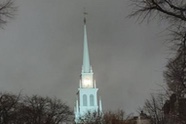
One if by Land, Two if by Sea, and Three if by the Capitol Stepsby Elise Lemire (January 10)On the first anniversary of the Capitol attack, and the 162nd of Longfellow's poetic canonization of the Boston patriot, Paul Revere's ride remains a contested and protean symbol for a nation in crisis. |
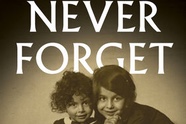
For Child Survivors of Auschwitz, "Who Am I" was the Most Difficult Questionby Alwin Meyer (January 24)For child survivors of Auschwitz, efforts to reunite them with families after forced separation in the camp often proved to be an ongoing source of pain and confusion. |
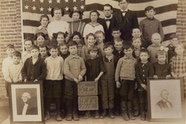
Lessons from the History Textbook Wars of the 1920sby Bruce W. Dearstyne (February 21)Historians helped defuse a national tempest over allegedly unpatriotic textbooks in the 1920s by explaining the nature of professional historical research, interpretation, and dissemination, and insisting on the right and duty of professionals to exert expertise. That kind of work is needed again today. |

Wheat and Deep Ports: The Long History of Putin's Invasion of Ukraineby Scott Reynolds Nelson (February 27)Every would-be empire depends on the global trade in food and energy; regardless of the consequences of the current Ukraine crisis, Russia's drive to control the Black Sea won't go away. |

Deadly Cucumbers and Roof Tiles: The Lines Separating Civilians from Combat Have Always Been Blurredby Nadya Williams (March 14)Stories of ordinary Ukrainians resisting invasion are framed as heroic, but this can conceal the trauma and violence inflicted on civilians in warfare, both modern and ancient. |

The Erosion of the Concept of Legitimate Opposition Undercuts Democracyby Jeff Kolnick (April 11)The rising tendency to see partisan opponents as enemies of the nation justifies action to weaken democracy. |
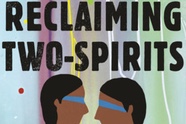
"Two-Spirit" Visibility and the Year Activists Rewrote Historyby Gregory D. Smithers (April 25)In 1990, a group of Native activists coined the term "Two-Spirits" to encompass a variety of people who embodied masculine and feminine traits in indigenous communities, replacing colonizers' terminology that emphasized shame or deviance. Marginalized communities change their history by changing who tells their story, and how. |
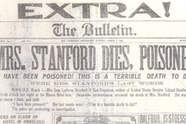
Jane Stanford's Murder Shows the Moral Vacuum of Gilded Age Fortune and Philanthropyby Richard White (May 23)Jane Stanford's murder by poisoning in 1905 was part of a long chain of inequities and moral abdications that attended the great Gilded Age fortunes at every step, from their accumulation to their dispersal as philanthropy. |
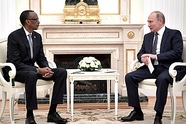
Regimes Around the World are Manipulating History and Threatening Historiansby Ruben Zeeman (June 6)Official attempts to hinder bona fide historical research and debate through legislation or other means, are the first signals that history is at risk of abuse – such efforts abroad are also a warning to historians in America. |

Florida's Divisive Concepts Bill Mistakes What Historians Do, with Dire Implicationsby Jessica L. Adler (June 13)The legislation would make it difficult – and even legally risky – for professors to perform the kinds of source-driven teaching that underlies the pedagogical goals of the discipline. |
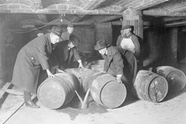
What Prohibition History Tells Us about Returning Abortion to the Statesby Richard F. Hamm (June 20)Federal control of interstate commerce and the mail mean that medical abortifacents will be difficult for state-level antiabortion politicians to keep out of their borders. There's no doubt that they will seek to pass federal laws leading to a national abortion ban. |
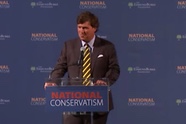
The Edmund Burke Foundation Betrays Namesake with Authoritarian "National Conservatism"by Thomas Lecaque and J.L. Tomlin (July 5)Edmund Burke Foundation has claimed the mantle of the foundational conservative in its recent manifesto, but what the document articulates is a blueprint for an authoritarian, theocratic society that owes more to European fascism. |
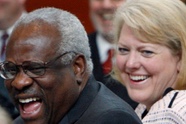
The Dictatorship of the Supreme Courtby Christine Adams (July 11)Six judges, who are impervious to public opinion and majority rule are exercising arbitrary control over American society, jeopardizing the very legitimacy of the government. |
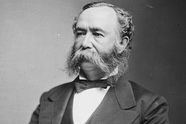
Weaponizing Bad-Faith History is a Conservative Tradition from Jim Crow to Alitoby Charles J. Holden (August 1)"Conservatives’ invocations of history often mixed wishful thinking about the past with bad faith in interpreting it. And it was always done with the present-minded purpose of maintaining elite white male rule, especially on matters of race." |
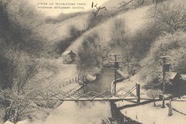
Climate Change Just Erased the Past in Kentucky. Where Will it Happen Next?by Tina A. Irvine (August 8)The archives of the Hindman Settlement School in Knott County were inundated by flood waters on July 28—a devastating loss of one community's history and culture, and a warning to historians that our knowledge of the past is at risk from climate change. |

The Failed Promise of Free, Universal School Lunchby Marcus B. Weaver-Hightower (August 28)With the lapsing of pandemic support for expanded school lunches, the nation returns to its historical roots of stigma and stinginess around the feeding of children. |
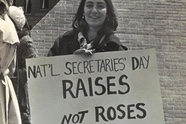
"Pour Myself a Cup of Ambition": The 1970s Echo in Today's Union Revivalby Ellen Cassedy and Lane Windham (September 4)This Labor Day, we’re hopeful about the renewed energy and excitement for workplace organizing—especially by women workers—and cautiously optimistic that today’s workers may overcome the sorts of corporate tactics that blocked organizing in the 1970s. |

What Casey Jones Tells Us about the Past and Present of America's Railroad Workersby Scott Huffard (September 18)Although it's difficult to separate fact from fiction around his life, the famed railroad engineer had something in common with today's rail workers: being stretched to the limits of health and safety by companies' pursuit of profit. |
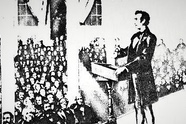
Lincoln Would have Had an Answer for the "Originalists"by Richard Striner (October 9)The 16th President looked to the constitutional crises of his time and asked whether the document was created to serve the people or the other way around. Today he might ask the same of the Supreme Court. |

The Salem Trials Challenge Us to Resist Moral Panic and Suspicionby Anna K. Danziger Halperin (October 23)The Salem Witch Trials have been a perennial subject of fascination. A new exhibition challenges us to think about the potent mix of moral panic and social suspicion that drove accusations in Salem as a caution for ourselves today. |
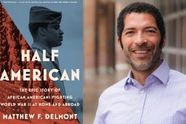
Matthew Delmont on his Epic History of Black Americans' Experience of World War IIby Robin Lindley (October 28)"Black activists in the Black press recognized what a tremendous danger Nazism and that racial ideology posed to the world because they saw the commonalities between how Jews were being treated in Europe and how Black people were being treated in the American South. And they called out those similarities explicitly." |
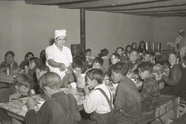
Immigrant Education in America is a Series of Stories of Courageby Jessica Lander (December 11)One in four K-12 students today is an immigrant or a child of immigrants. A high school history teacher in an immigrant-serving school argues that we need to remember the examples of past educators who defied law and prejudice to make schools places where immigrants became Americans. |